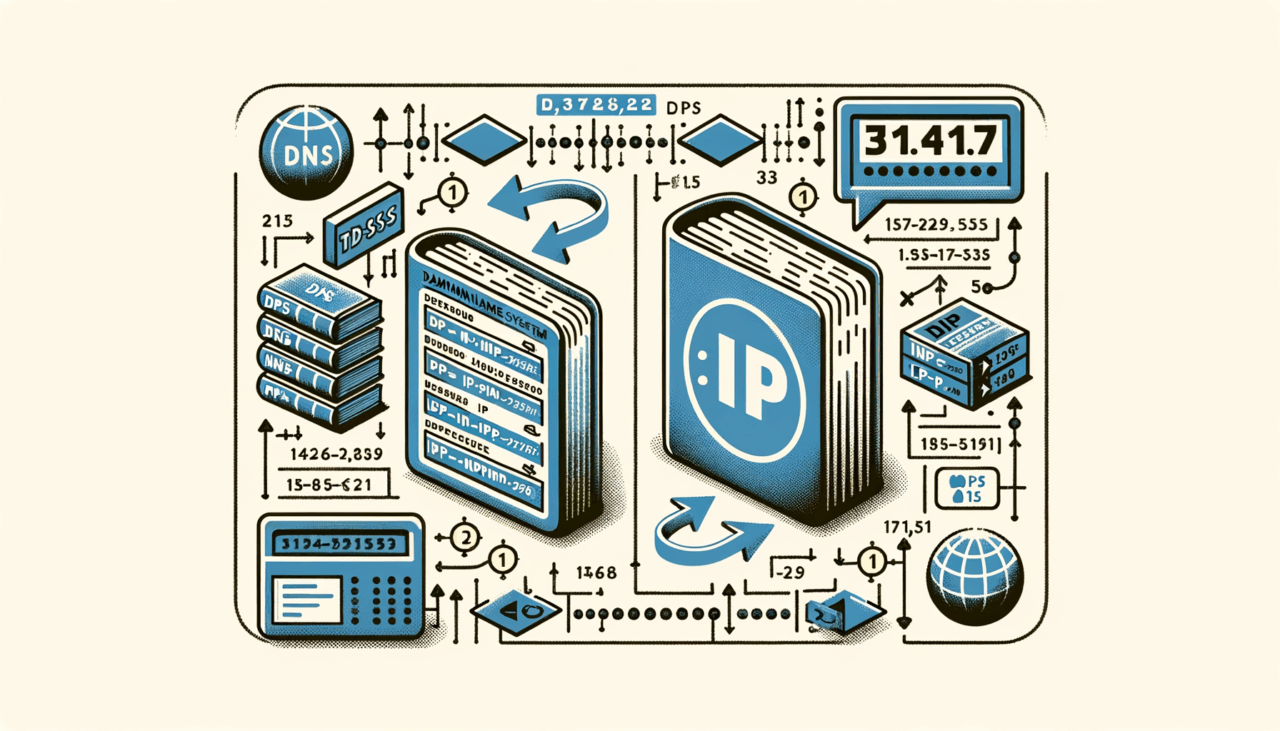Welcome, fellow netizens! If you’re reading this, you probably have a healthy curiosity about the internet—a place where memes are born, cats reign supreme, and your favorite streaming shows are just a click away. But have you ever stopped to ponder the magic behind the scenes? That’s right! Let’s dive deep into the realm of DNS and IP addresses, the unsung heroes of the internet. Buckle up, and let’s demystify these technical wonders!
What is DNS?
Domain Name System (DNS) is like the phonebook of the internet. When you type a website’s name into your browser (like www.example.com), DNS translates that domain into a machine-readable IP address. Think of it as a helpful librarian guiding you to the right book on a vast shelf of information.
A Little Anecdote
Picture this: you’re trying to call your friend, but all you have is their name. You know they live in your neighborhood, but without their phone number, good luck reaching them! That’s where DNS comes in—it’s the magical number that connects names to their corresponding addresses.
What is an IP Address?
An IP Address (Internet Protocol Address) is the unique identifier for a device on a network. It’s like your home address, but for your computer or smartphone. Every device connected to the internet has an IP address, which helps route data to and from the correct destination.
Types of IP Addresses
There are two main types of IP addresses:
1. IPv4: The most common format, consisting of four sets of numbers ranging from 0 to 255 (e.g., 192.168.1.1).
2. IPv6: A newer format designed to replace IPv4, with a much larger address space, represented as eight groups of hexadecimal numbers (e.g., 2001:0db8:85a3:0000:0000:8a2e:0370:7334).
Quick Comparison Table
| Feature | DNS | IP Address |
|---|---|---|
| Purpose | Translates domain names to IPs | Identifies devices on a network |
| Format | Human-readable (e.g., www.example.com) | Numeric (e.g., 192.168.1.1) |
| Type | Hierarchical and decentralized | Unique and assigned |
| Examples | google.com, facebook.com | 172.217.14.206, 2607:f8b0:4005:80a::200e |
| Changeability | Can change with DNS updates | Generally static unless using DHCP |
How DNS and IP Addresses Work Together
Now that we understand what DNS and IP addresses are, let’s see how they work together in a typical browsing scenario:
- You Type a URL: When you enter a domain like
www.example.comin your browser, it sends a request to a DNS server. - DNS Resolution: The DNS server looks up the corresponding IP address for the domain. If it’s not cached, it will query other DNS servers until it finds the right one.
- Data Routing: Once the IP address is found, your browser communicates with the server at that address, sending and receiving data to load the website.
Code Snippet: Example of DNS Lookup in Python
For those of you with a knack for programming, here’s a simple Python code snippet that performs a DNS lookup using the socket library:
import socket
def get_ip_address(domain):
try:
ip_address = socket.gethostbyname(domain)
return ip_address
except socket.gaierror:
return "Domain not found!"
domain = "www.example.com"
print(f"The IP address of {domain} is: {get_ip_address(domain)}")
A Dash of Humor
Imagine if we didn’t have DNS—every time you wanted to visit a website, you’d have to memorize hundreds of numerical addresses. It would be like trying to remember every single phone number in your contact list without the search feature. Talk about a headache!
Why DNS Matters
- User-Friendly: DNS makes the internet accessible to everyone. Instead of remembering complex IP addresses, we can use simple domain names.
- Load Balancing: DNS can distribute requests across multiple servers to handle large amounts of traffic efficiently.
- Security Features: DNS can also add layers of security, like DNSSEC (Domain Name System Security Extensions), to protect against certain types of attacks.
Conclusion
In summary, DNS and IP addresses are the backbone of the internet, working together to turn your simple requests into the rich, interconnected web we enjoy today. Whether you’re looking at cute cat videos or reading this article, remember that behind every click is a complex but beautifully orchestrated system of technology.
So next time you surf the web, take a moment to appreciate the unsung heroes—DNS and IP addresses. They may not be as glamorous as the latest viral TikTok dance, but without them, the internet would be a much less fun place!
Happy browsing, and may your DNS resolutions always be swift!

Comments (0)
There are no comments here yet, you can be the first!